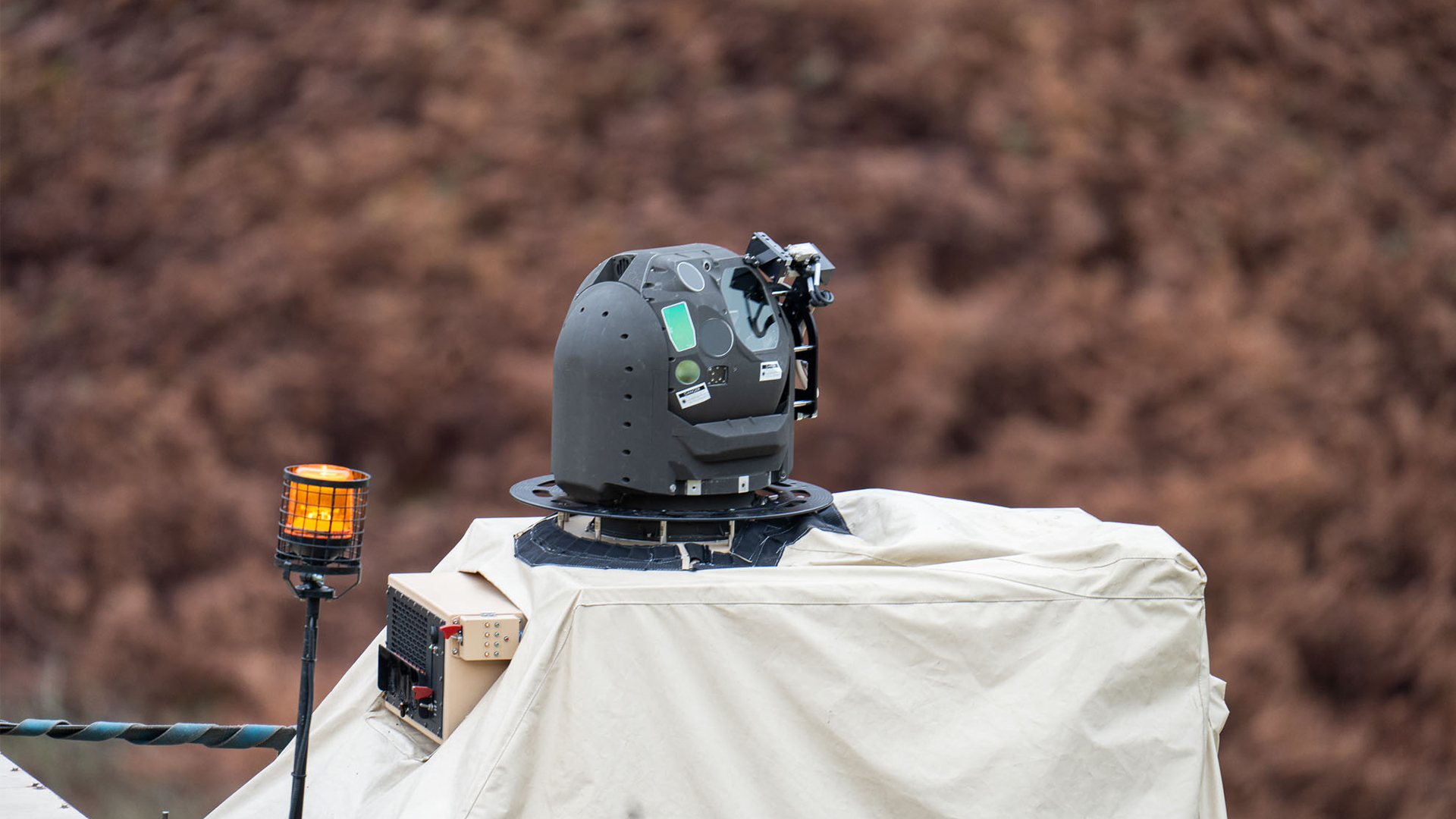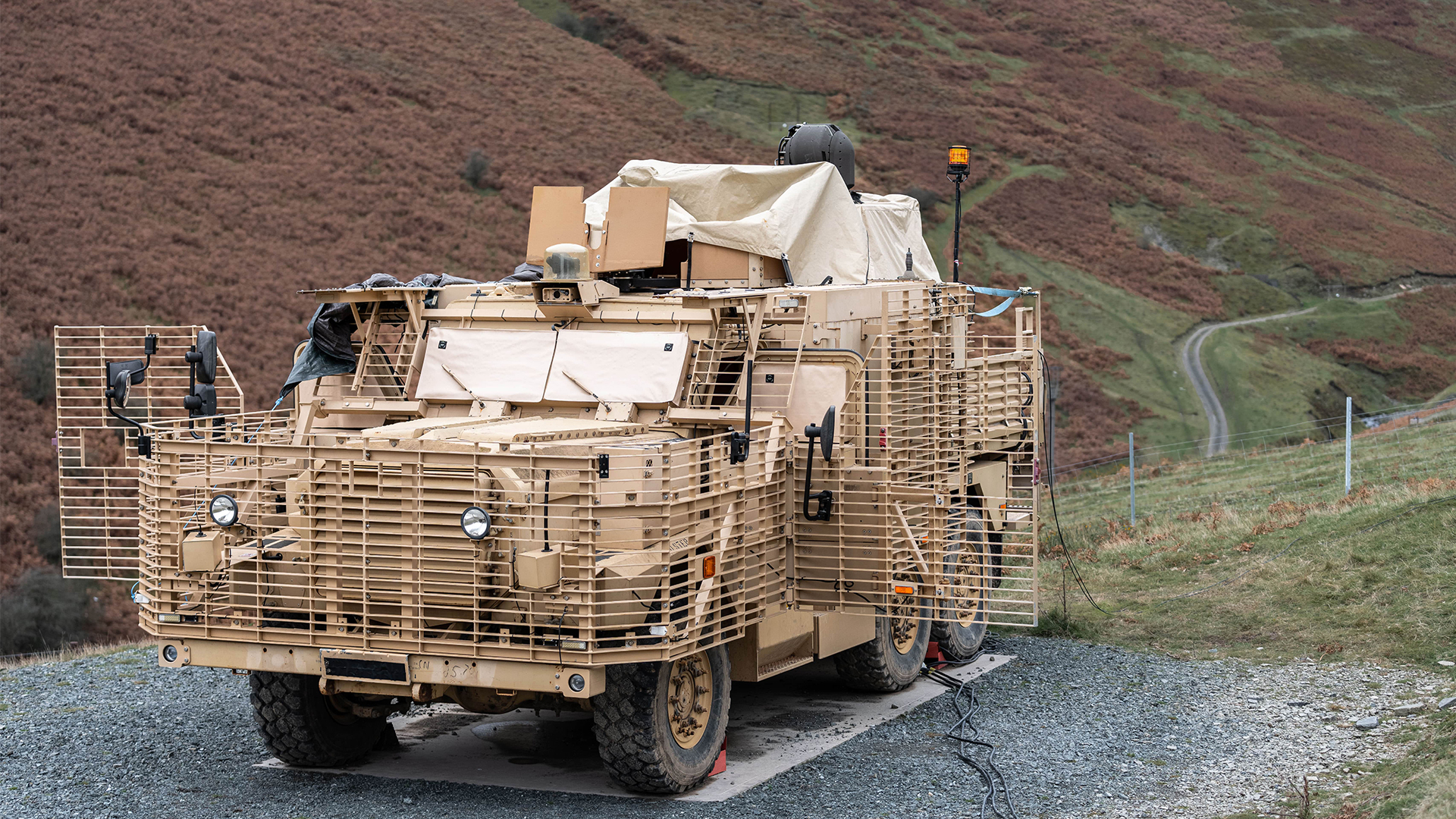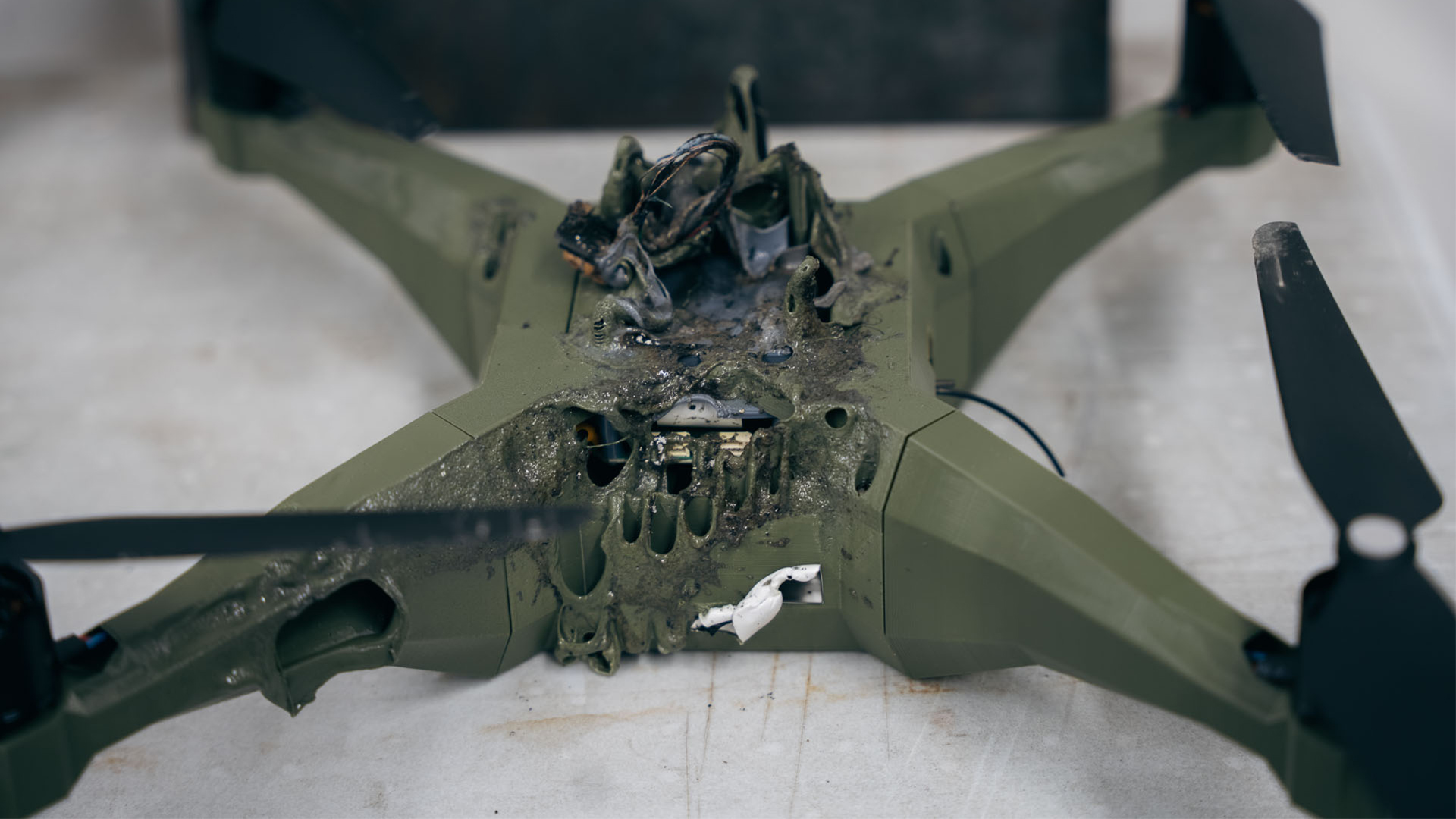Speedy and successful: Army's high-energy laser weapon system shoots down drones
Soldiers from the Royal Artillery have carried out a successful live-firing of the new high-energy laser weapon system against a number of drones.
The HELWS, which was fitted to a six-wheel Wolfhound armoured vehicle, had been test-fired before, but this time it engaged moving aerial targets.
The trial saw soldiers from 16 Royal Artillery track and take down hovering targets at Radnor Range in mid-Wales.
The experiment marks the first time the British Army has tested a high-energy laser weapon mounted on an armoured vehicle while also having soldiers trained on the weapon's targeting and tracking technologies.
Raytheon's HELWS was the first laser weapon integrated and fired from a land vehicle in the UK, as part of a joint programme between Raytheon UK and Team Hersa – the joint enterprise between the Defence Science and Technology Laboratory and Defence Equipment and Support.
The system operates by directing an intense beam of energy toward its target, using advanced sensors and tracking systems to maintain lock-on and accuracy in real-time.

Unlike conventional munitions, laser weapons are virtually limitless in terms of ammunition supply, which means they could represent a cost-effective alternative to some current in-service weapons.
Warrant Officer Matthew Anderson, trials manager for the Army's Mounted Close Combat Trials and Development Group, said: "Every engagement we've done has removed a drone from the sky.
"While we've been testing a variety of distances, speeds and altitudes, one thing has remained – how quick a drone can be taken out.
"It's definitely a capability that could be added to the arsenal of weapons that we use on the battlefield."

The purpose of the capability demonstrator programme is to discover and test the potential future use of directed energy weapons by the British Army.
Having already been tested by engineers from the MOD and industry, the latest trials should provide knowledge, information and experience to support future requirement decisions.
This should ensure the UK stays at the forefront of this novel and disruptive technology.









